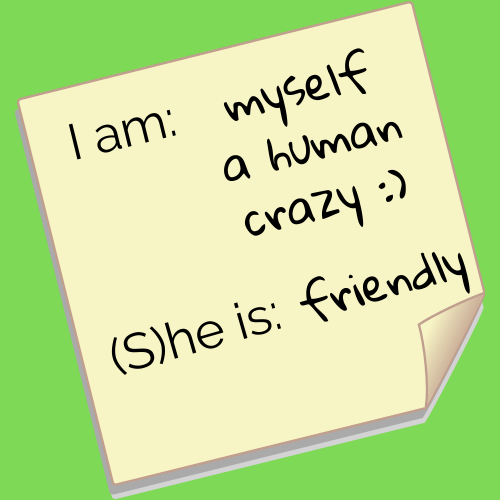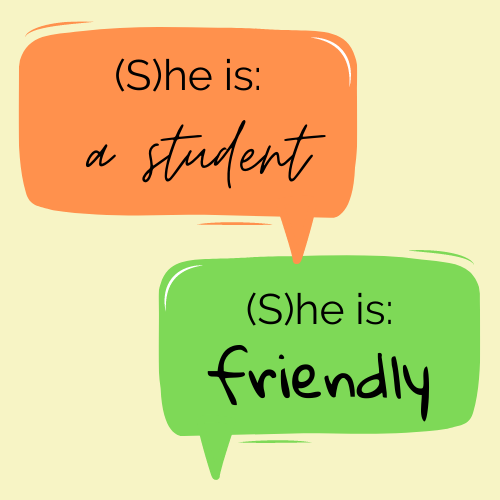
Exercise 2: Who am I?
Time
20 min
The goal of this exercise
To present identity as a complex concept that is negotiated between an individual and the society.
Instruction for teacher
Divide students into pairs. Ask each student to write on a sheet of paper three words that describe their identity (i.e. who they are) and one word that describes the identity of the other person from the pair (i.e. who is that person). Then ask each pair to say to each other the word they used to describe one another. Briefly present the concept of identity. Then ask the whole class to say aloud one by one the word used to describe each person from the pair. After listening to all the words, ask the class how can they analyse the types of words used.
Two examples are presented below. Notice that students read only the one word about the person (not about themselves):

|

|

|
Discuss that identity is both an individual sense of characteristics that makes us unique when compared to other person, and a self-conception that is linked to membership in different groups related to ethnicity, religion, social class, or gender.
Present the two short clips.
Ask students what are the identities of the Muslims who are speaking in the videos. What kind of characteristics are they using in their self-presentation? Why? Tell the students that identity is stable, in terms of us being aware of who we are, despite the time flow. At the same time the identity is reflexive as it can be influenced by the situation (you feel like a student at school, but at home rather as a child; both social roles are present – it is just that one’s awareness of them changes depending on the context) and by what others think (if I believe that I am Polish, but others reject this part of my identity, because I am not Slavic, it might impact my self-perception and identity). Discuss with students how the perception of Islam and Muslims might impact the identity.
Methodical explanation
The diversity of the module and the diversity of participants, resulting from worldviews and value systems, makes each repetition of the activity different. Therefore, each one requires a different approach and use of more or less active methods. Remember that in this module, participants will have the opportunity to confront and express their views. However, I suggest that you refrain from judging: allow the participants to have a space to express themselves and an opportunity to name their emotions.


